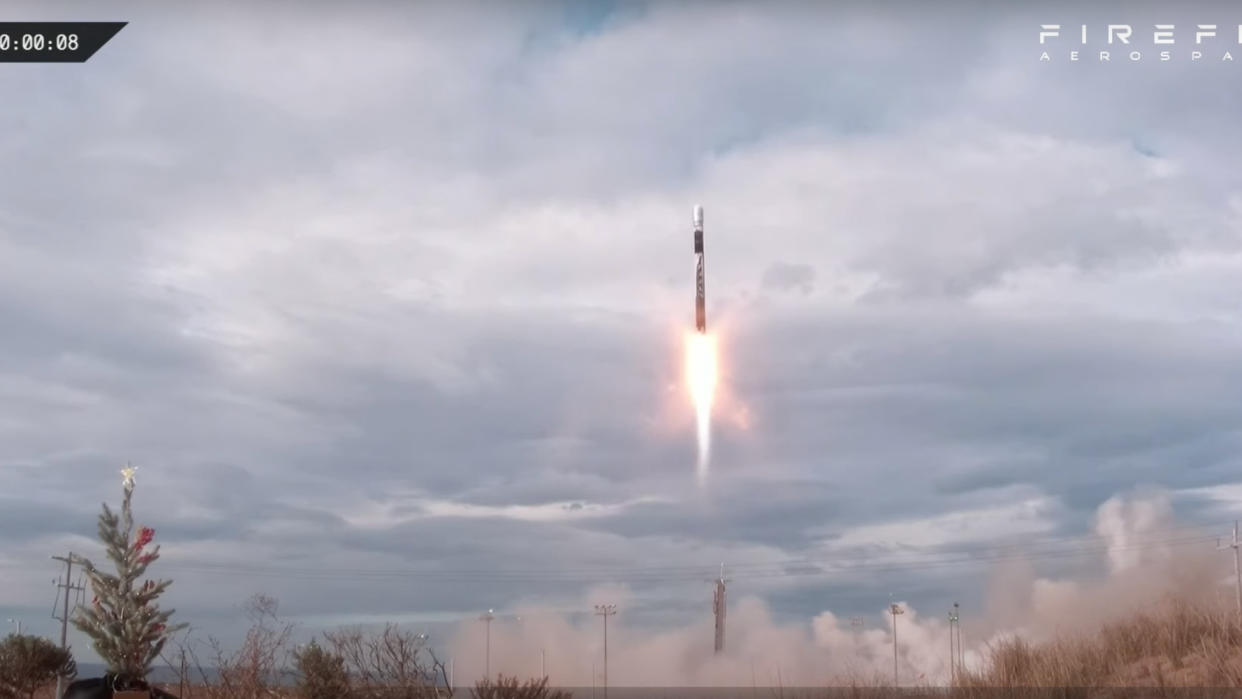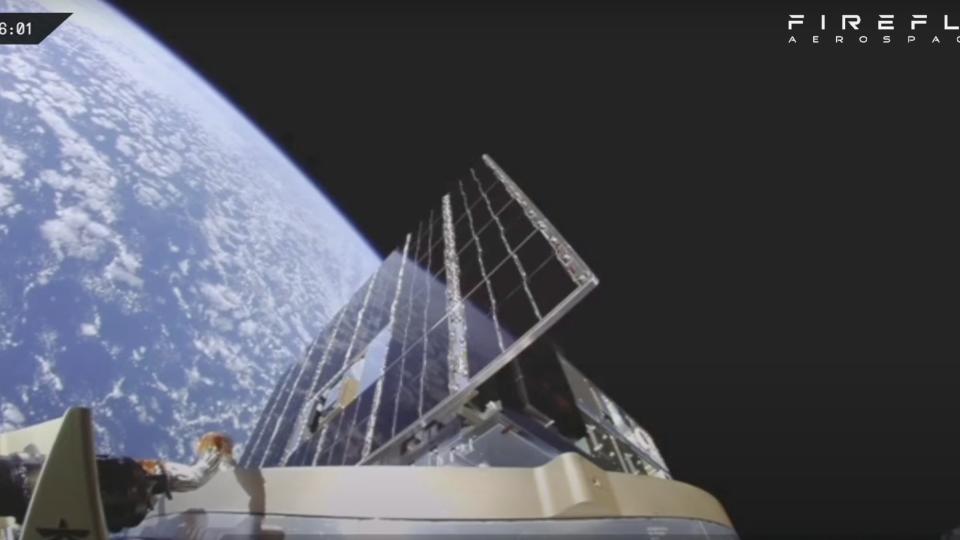Firefly Aerospace's Alpha rocket launches Lockheed Martin satellite to space (video)

Firefly Aerospace launched its Alpha rocket for the fourth time ever today (Dec. 22), sending a Lockheed Martin satellite toward orbit.
Alpha lifted off from California's Vandenberg Space Force Base Friday today at12:32 p.m. EST (1732 GMT; 9:32 a.m. local California time), kicking off a mission that Firefly calls "Fly the Lightning."
The launch was originally scheduled for Wednesday (Dec. 20), but bad weather pushed it back by two days.
Related: New record! Firefly Aerospace launches Space Force mission 27 hours after receiving order

Fly the Lightning is sending an electronically steerable antenna (ESA) payload developed by aerospace giant Lockheed Martin to low Earth orbit.
The instrument "will demonstrate faster on-orbit sensor calibration to deliver rapid capabilities to U.S. warfighters," Firefly representatives wrote in a mission description.
"The ESA sensor is expected to calibrate in a fraction of the time it takes to operationalize traditional on-orbit sensors, which historically can take months to be powered on, fully calibrated and ready to perform their mission," they added.
The sensor will be deployed about 54.5 minutes after launch, if all goes according to plan. And everything does look good, with Alpha hitting all of its early marks. (Firefly and its streaming partner, NASASpaceflight.com, ended the launch webcast about 10 minutes after liftoff, at the request of Lockheed Martin.)
RELATED STORIES:
— Firefly Aerospace's Alpha rocket reaches orbit for 1st time
— NASA picks Firefly Aerospace to deliver science payloads to the moon in 2023
— Watch Firefly Aerospace use a rocket engine to light birthday candles
Fly the Lightning is the fourth orbital mission for Firefly and the 95-foot-tall (29 meters) Alpha rocket.
The rocket debuted in September 2021 on a test flight that failed shortly after liftoff. The second try, in October 2022, was a partial success; Alpha delivered seven satellites to orbit but apparently deployed them too low, leading to early reentries.
Flight 3, a mission for the U.S. Space Force called Victus Nox, was a triumph. Alpha lifted off just 27 hours after the Space Force gave the order, a shorter turnaround than on any previous national-security mission. The rocket also deployed its primary payload — a satellite that will perform a "space domain awareness" mission — at the proper altitude.
Though Fly the Lightning's customer is a private company, the U.S. military watched the liftoff with keen interest.
"The launch is being observed by members of the U.S. Space Force Tactically Responsive Space team to inform future missions and the requirements for repeatable on-demand launch capabilities," Firefly wrote in the mission description.
Editor's note: This story was updated at 1 p.m. EST on Dec. 21 with the new Dec. 22 target launch date, and again on Dec. 22 with a slightly delayed launch time. It was updated again at 12:50 p.m. EST on Dec. 22 with news of successful liftoff.

